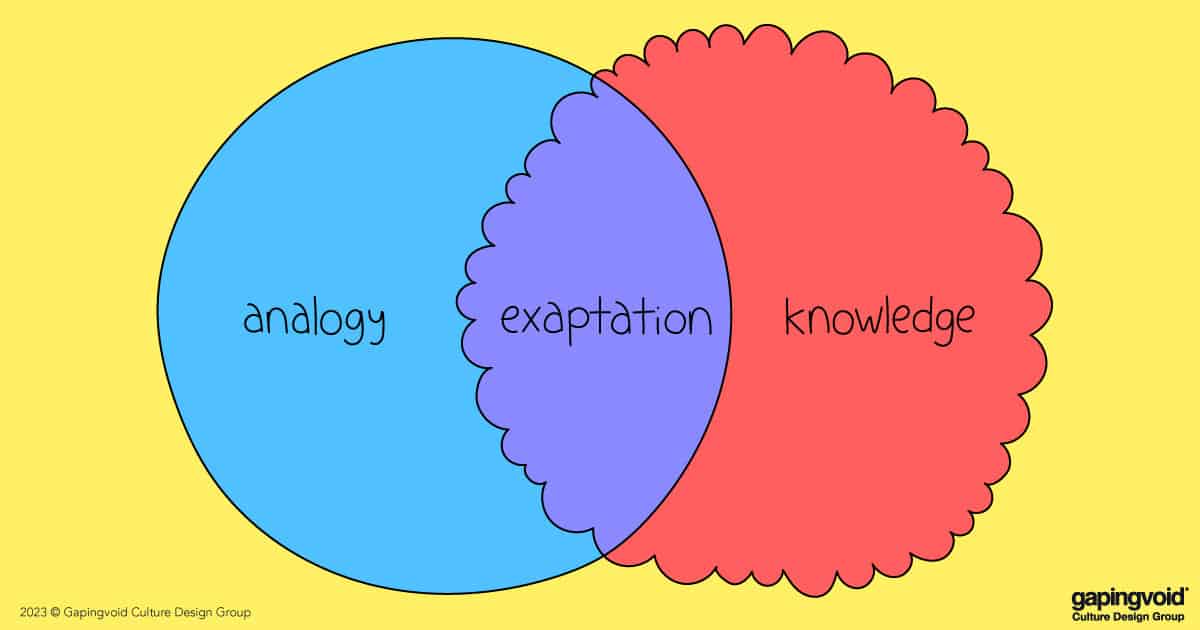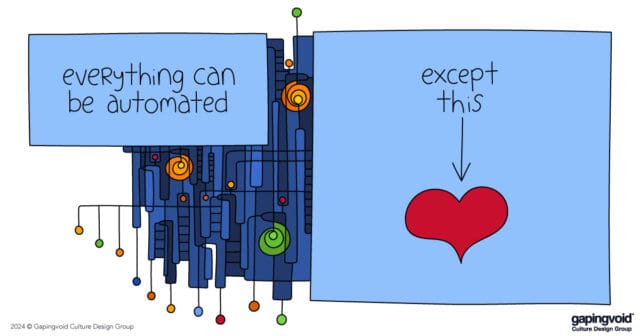
When you think about the world of management theory, names like Peter Drucker, Mike Peters, and Warren Buffet likely come to mind. But the Nineteenth Century Naturalist, Charles Darwin, was pretty influential too.
As Peter Thiel points out in Zero to One, evolutionary principles have seeped into the way we talk and think about business.
For example, we call business competition ‘Economic Darwinism.’ And that’s only the beginning.
Just like different birds have different beaks to help them eat different things, companies specialize to fill niches. They also operate with different relationships in the marketplace (ecosystem), like Mcdonald’s and Coca-Cola (symbiotic), Amazon and Mom-and-Pop stores (predatory), or ChatGPT and Bard (competitive) just to name a few.
When the market (‘environment’) changes, businesses (‘species’) must adapt (‘evolve’) or become unprofitable (‘go extinct’).
Using evolution to explain business also has an evolutionary analog: “exaptation.” When a biological trait that evolved because it served one particular purpose suddenly becomes useful for a different one, biologists say it has been “exapted.” For example, feathers initially evolved because they regulated temperature. They were exapted to the purpose of aiding in flight.
As it turns out, exapting is a powerful shortcut to creativity and perspective. You can exapt ideas to gain more insight into your business.
We do this all the time without realizing it. We exapt the notion of leverage from mechanics to describe the process of using debt to amplify investment returns; the notion of inertia from physics to determine how to put tension on the system in an organization; and in our case, the idea of an operating system to design how culture shapes an organization.
Our knowledge of one domain helps us understand and reach new heights in another while also giving us familiar language to pull from when trying to understand unfamiliar or complex ideas. As Ludwig Wittgenstein said, “the limits of my language mean the limits of my world.”
Business is complex, messy, and, at its very core, competitive. So it’s no wonder that evolutionary terms are used so frequently in business parlance. Business, after all, is the embodiment of how the natural world actually works.



